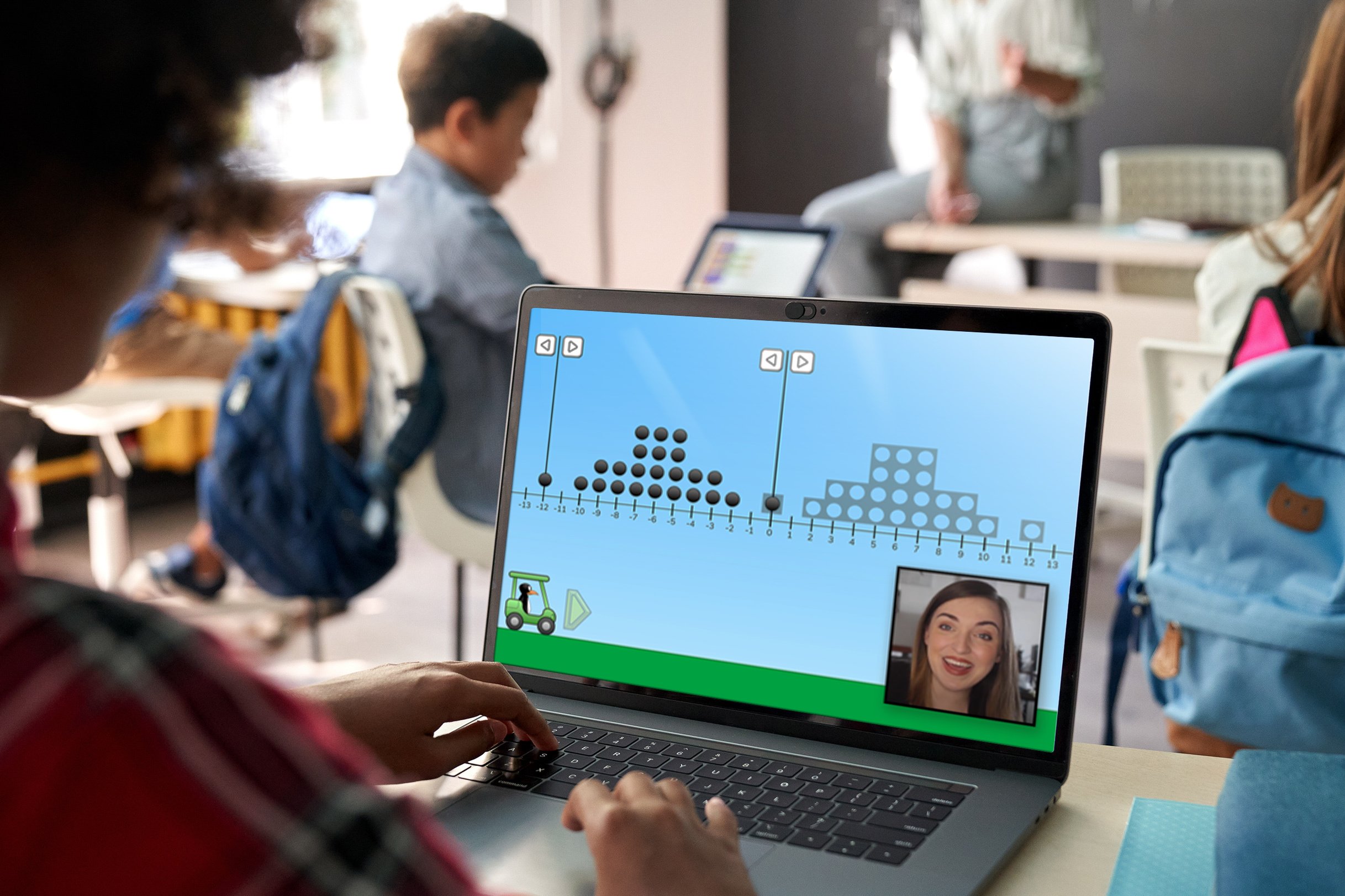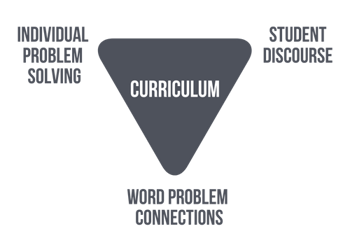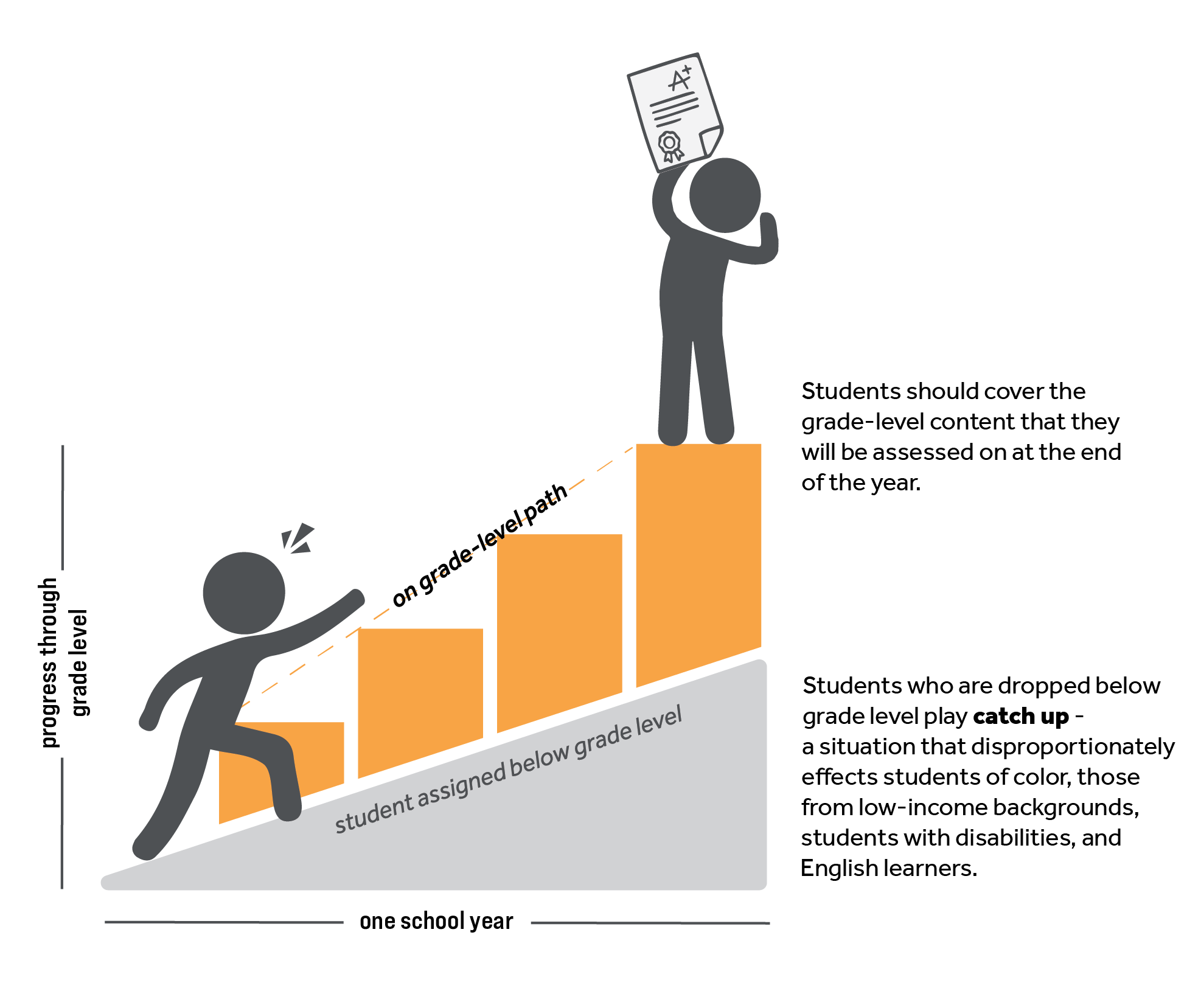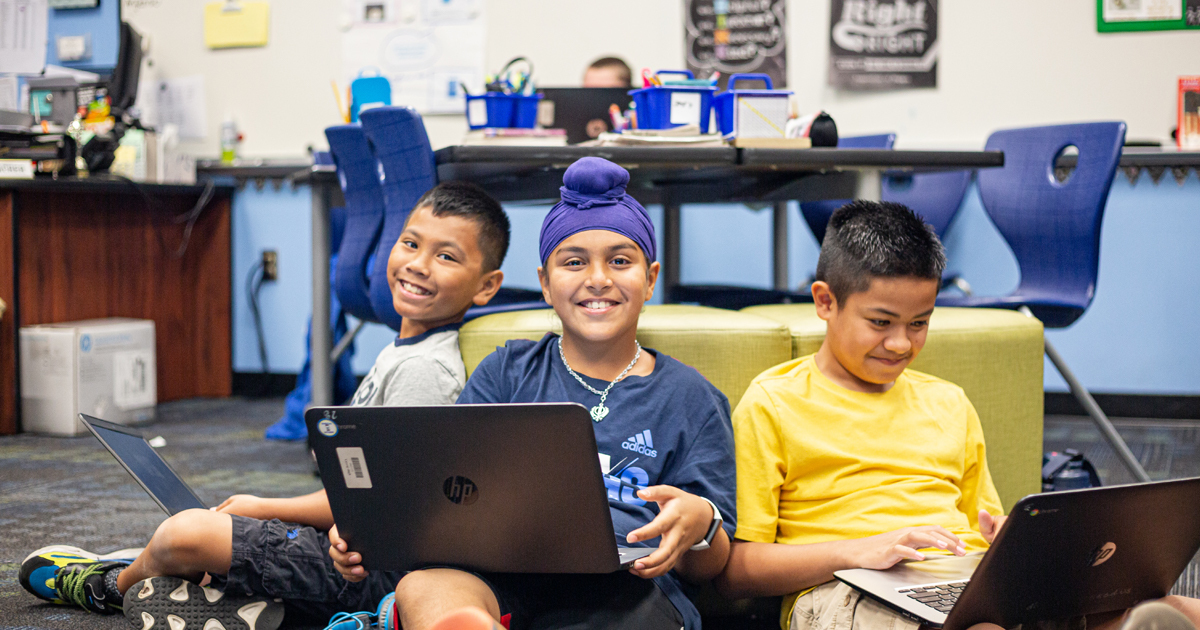Programs
Experience
Services
Educator Topics
Subscribe to the Newsletter
Subscribe to the Blog

ST Math® Tutoring Powered by VIPTeacher accelerates student learning through online high-impact, grade-level tutoring by state certified teachers. Available for grades 1-8.
For the students that have been most impacted by interrupted instruction, rather than emphasizing missed skills, ST Math removes the barriers that prevent students from accessing elementary grade level content.
How? ST Math’s visual puzzles and game-based approach allows all students to build foundational grade level skills as well as improved self-beliefs in mathematics.
Research shows schools consistently using ST Math have on average boosted their state test scores as much as 14 percentile points in their statewide math ranking (Wendt, et al., 2019).

Each arc of learning is a set of 3 lessons that revolve around a particular game and build toward a foundational skill. The games leverage the brain’s spatial-temporal reasoning ability to solve mathematical problems. State certified VIPTeacher tutors act as a guide to help students productively struggle and motivate them to build lasting conceptual understanding.
ST Math leverages the brain’s spatial-temporal reasoning ability to solve mathematical problems (Spatial-Temporal Math: Underlying Scientific Concepts and Mechanisms).
This format is flexible to fit your schedule with one-on-one or small group tutoring sessions available during school, before- or after-school, or summer school.
ST Math Tutoring Powered by VIPTeachers offers high quality, state certified tutors who have at least one year of tutoring experience, a bachelor’s degree or above, have passed a background check, and have passed an ST Math certification.
State certified VIPTeacher tutors support and guide students when they hit struggle points. They know the right questions to ask to move the student forward and give them a confidence boost. They also provide observational feedback on the student’s progress and activities to the school or district.

It is widely believed that students who spend time on below-grade-level content will catch up, but we have found that is not the case. They are capable of working through challenges with persistence and perseverance to develop a deep conceptual understanding of math.
Summer school students, and educators alike, are doing everything they can to get back on track for the coming fall. We've found that students in fact, don't play "catch up" at all. By rushing the pace at which objectives are meant to be covered, the material never sticks before moving on to the next one.

Stick to grade-level content and instructional rigor.
Focus on the depth of instruction, rather than the pace.
Prioritize content and learning.
Maintain the inclusion of each and every learner.
Identify and address gaps in learning through instruction, avoiding the misuse of standardized testing to place kids into high or low ability groups or provide low levels of instructional rigor to lower performing students.
Capitalize on commonalities, not differences.
